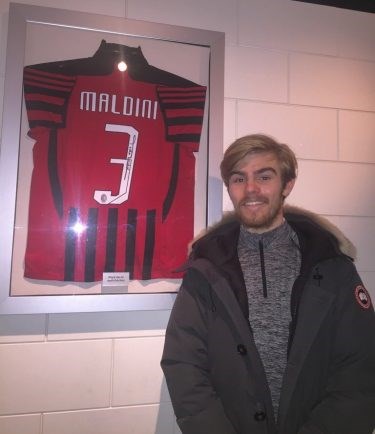A selection of leading sports journalists gathered in Manchester at the beginning of September for a week of debate at the annual Football Writing Festival. Max Carlyle, a BA (Hons) Football Business & Media student at UCFB Etihad Campus, attended the Festival and enjoyed a range of talks on the hottest topics – including the World Cup, the managerial merry-go-round and how to break into the industry – with some of the world’s most popular and respected football and sports journalists.
Max was ever present over the six days, and reported back on highlights for each session. Read on to find out more…
Follow Max on Twitter.

The National Football Museum played host to the Football Writing Festival 2018 once again on the Tuesday evening for the BBC’s How to Get into The Game event. The evening was full of tips and advice for those aspiring to work in the field of sports media.
The panel certainly had the experience necessary to answer the questions put forward by the audience. It was headed by BBC journalist and women’s football writer Suzy Wrack, who was joined by broadcast journalist Emma Sanders, freelance commentator Joshua Adu-Donkor, Final Score editor Lou Sutton and BBC Sport editor Dan Roan.
To kick off the evening, the panellists detailed their career paths which led to their current roles in the industry, with both Wrack and Saunders explaining how they were once among the crowd at the Festival in previous years. A question which came from the audience which was widely discussed was: does it matter what degree you study at university?
Wrack, as an architecture graduate, said she believed that a degree does not define a person’s career, and that in her experience with the sports media industry she has never been asked what she studied at university. Sanders, who graduated from the University of Salford in journalism, placed emphasis on “getting to know people and their job. They will know people that will lead you places”. This certainly paid dividends for Sanders, who after a spell of freelancing covering non-league football for the Liverpool Echo, was snapped up by the BBC and thrown in at the deep end covering the Champions League final on her trial shift.
Roan also detailed his route to the position that he now finds himself in as BBC Sport editor. Starting off in the quiet town of Northampton, his “natural curiosity of the wider world” led him to a local news agency where he sold news stories and conducted interviews wherever he could. He said: “Working in the media is a less structured, fragmented environment. No career has a clear trajectory but stick with it. Take the feedback you receive and use it to your advantage – don’t take peoples word for it.”
Fresh from commentating on the first ever Manchester United women’s game, Adu-Donkor had plenty to say on starting off in non-league football, as he did himself. He said: “Football is football. Premier League to non-league it stays the same. As long as there’s two sets of goal posts.” When asked on why he opted for commentary, Adu-Donkor explained: “Writing just wasn’t for me, but that’s not meant to discourage people as there are many different forms: blogging, long feature pieces, commentary.”
Sutton highlighted the importance of social media as a new tool, adding: “It gives you the ability to ask questions, stand out, know your audience and know your market.” And Roan imparted his wisdom on the importance of developing contacts: “Whoever you’re talking to could give you a break or your next story. Networking is imperative.” Sanders highlighted the role of social media and how it is providing significant opportunities: “Social media is very important. It used to be new as a whole but it’s part of the industry now. It works in that there are so many ways to get your work seen.”
To summarise, this was a truly beneficial evening for those looking for a break in the sports media industry where insight and valuable tips came in abundance.
















